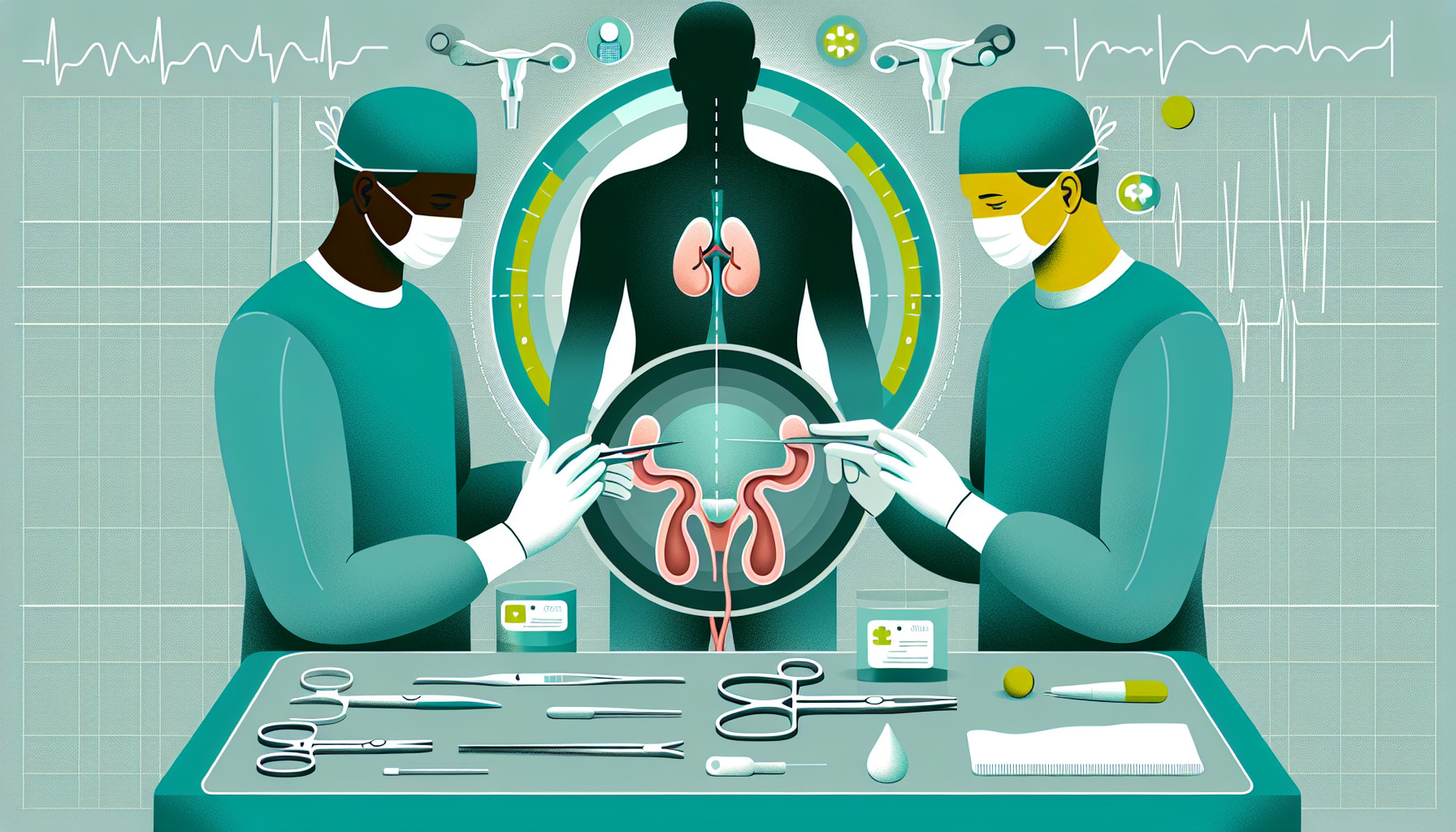Our Summary
This research paper reviews the current literature on two types of surgeries for bladder cancer: open radical cystectomy (ORC) and robotic radical cystectomy (RRC). ORC is the traditional method of treatment for advanced bladder cancer, but it comes with significant risks and complications. RRC, on the other hand, is a newer, minimally invasive method that uses robotic technology.
The study found that the robotic surgery generally has better results in terms of recovery time, but it takes longer and is more expensive. There’s also not enough long-term data on the effectiveness of the robotic surgery in terms of cancer outcomes compared to the traditional method.
The authors also looked at the effect of the surgeon’s experience on the success of the surgery and how feasible it would be for this method to be adopted more widely. They found no consensus on the best surgical approach and urinary diversion method (a procedure done to redirect urine flow from its usual pathway).
The study points out a lack of standardized studies on the impact of both surgeries on the patients’ quality of life, particularly in terms of urinary function. Therefore, the authors aim to find out if there are significant benefits to the robotic surgery and how the surgical approach influences the choice of urinary diversion.
FAQs
- What are the two types of surgeries for bladder cancer discussed in this research paper?
- What are the key differences between open radical cystectomy (ORC) and robotic radical cystectomy (RRC)?
- What does the study say about the impact of the surgeon’s experience on the success of the surgery?
Doctor’s Tip
One helpful tip a doctor might tell a patient considering cystectomy is to discuss the risks and benefits of both traditional open surgery and robotic surgery with their healthcare team. It’s important to understand the potential outcomes, recovery time, costs, and long-term effects of each option before making a decision. Additionally, seeking out a surgeon with experience in the specific type of surgery being considered can improve the likelihood of a successful outcome.
Suitable For
Patients who are typically recommended cystectomy are those with advanced bladder cancer that has not responded to other treatments such as chemotherapy or radiation therapy. Additionally, patients with non-invasive bladder cancer that has a high risk of progression to invasive disease may also be recommended for cystectomy. Patients with other bladder conditions such as interstitial cystitis or neurogenic bladder may also be candidates for cystectomy. Ultimately, the decision to undergo cystectomy is made on a case-by-case basis by a multidisciplinary team of healthcare providers.
Timeline
Before cystectomy:
- Patient is diagnosed with bladder cancer and undergoes various tests and evaluations to determine the stage and extent of the cancer.
- Patient may undergo chemotherapy or radiation therapy as part of their treatment plan.
- Patient discusses treatment options with their healthcare provider, including the possibility of cystectomy.
- Patient prepares for surgery by meeting with their surgical team, undergoing pre-operative testing, and making necessary arrangements for post-operative care.
After cystectomy:
- Patient undergoes the cystectomy surgery, either through open radical cystectomy or robotic radical cystectomy.
- Patient may require a urinary diversion procedure to redirect urine flow, depending on the type of surgery performed.
- Patient stays in the hospital for a period of time to recover from surgery and receive post-operative care.
- Patient undergoes rehabilitation and physical therapy to regain strength and function.
- Patient may experience changes in urinary function and may need to adjust to a new way of managing their bladder.
- Patient undergoes regular follow-up appointments and monitoring to check for any signs of cancer recurrence or complications.
- Patient works with their healthcare team to manage any side effects or complications that may arise from the surgery.
What to Ask Your Doctor
Some questions a patient should ask their doctor about cystectomy include:
- What are the risks and potential complications associated with open radical cystectomy (ORC) and robotic radical cystectomy (RRC)?
- How does the recovery time and cost differ between ORC and RRC?
- What is the long-term effectiveness of RRC compared to ORC in terms of cancer outcomes?
- How does the surgeon’s experience impact the success of the surgery?
- Is RRC a feasible option for me, and how widely is this method adopted?
- What is the best surgical approach and urinary diversion method for my specific case?
- How will the surgery impact my quality of life, particularly in terms of urinary function?
- Are there any alternative treatment options to consider before deciding on cystectomy?
- What can I expect during the recovery process and what support resources are available to me?
- How often will I need follow-up appointments after the surgery?
Reference
Authors: Patel R, Szymaniak J, Radadia K, Faiena I, Lasser M. Journal: Clin Genitourin Cancer. 2015 Oct;13(5):421-7. doi: 10.1016/j.clgc.2015.06.006. Epub 2015 Jul 2. PMID: 26234169
